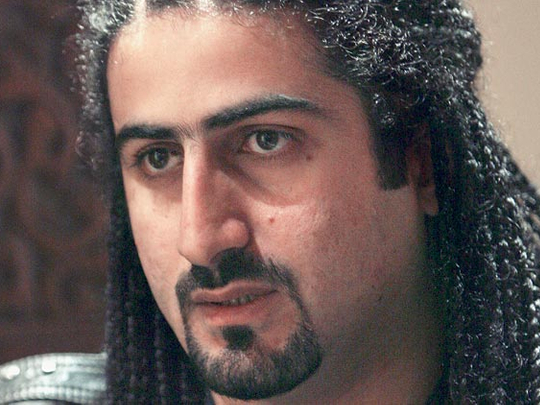
Riyadh: With a book written by one of Osama Bin Laden's sons, and with news of a daughter sheltering in the Saudi Embassy in Iran, some of the blanks are being filled in on the life of the September 11, 2001 mastermind's large family, including lurid details of his parenting style.
Two weeks ago, the son, Omar Bin Laden, revealed that many of the children who had been with their father in Afghanistan escaped to Iran following the 2001 US-led invasion, and were still together in a walled compound under Iranian guard.
Confirmation came with the news that a daughter, Eman Bin Laden, had taken refuge in the Saudi Embassy in Tehran. Saudi officials are negotiating with the Iranians to allow Eman to return to Saudi Arabia, where she was born, and on Tuesday Omar Bin Laden told The Associated Press that he, as well as his wife and mother, had applied for visas to go to Tehran and help speed Eman's case.
Omar and his wife, Zaina Alsabah, later e-mailed the AP to report that another Bin Laden son, 16-year-old Bakr, had been allowed to leave on December 25. It said "He arrived with great joy at the destination of his choice," and was with relatives. The e-mail did not disclose where Bakr was, but said he was not in Saudi Arabia.
Bin Laden's family was already under the spotlight in "Growing Up Bin Laden," written by Omar and his mother, Najwa Bin Laden, and published in late October. The book describes a brood of children — up to 20 from different wives — who were raised from an early age by an authoritarian father who shunned the luxury his inherited wealth could buy.
The mother and son write that the kids grew up in Saudi Arabia, Sudan and Afghanistan without laughter or toys, were routinely beaten, and lost their pets to painful death from poison gas experiments by their father's fighters.
When they became young adults, their father asked them to volunteer for suicide missions. When Omar protested, Bin Laden was quoted as replying: "You hold no more a place in my heart than any man or boy in the entire country. This is true for all my sons."
It was then, Omar recounted, that he "finally knew exactly where I stood. My father hated his enemies more than he loved his sons."
Speaking to AP, Omar recalled visiting his father's training camps in Afghanistan and being sent to the front lines of the civil war that tore Afghanistan in the 1990s.
"I nearly lost my life so many times," he said. "People may ask why I left my father. I left because I did not want anyone to chose my destiny. ... And I believe I chose correctly, for I chose life. I chose peace."
Osama Bin Laden was 17 when he married his Syrian first cousin, Najwa, then 15. The couple lived in the western port city of Jeddah, where Bin Laden took three more wives.
In Jeddah's suffocating heat, the family was denied the use of refrigerators and air conditioners. When Omar's asthma got bad, his father ordered him to treat it with honeycombs and onions. In the early 1990s, Bin Laden fell out with the Saudi royal family over the presence of US-led troops on Saudi soil and moved his wives and children to Sudan.
On a nighttime camping trip outside Khartoum, the Sudanese capital, Bin Laden told his oldest sons to dig ditches in the desert and then ordered his wives and children to each lie in one of them, according to the book. When someone complained of the desert cold, Bin Laden said they should cover themselves with dirt or grass.
"Do not think about foxes or snakes," the book quoted him as saying. "Challenging trials are coming to us."












